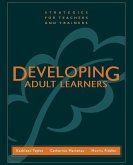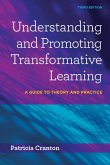When John M. Glen's Highlander: No Ordinary School, 1932-1962 first appeared in 1988, it was hailed as a full and authoritative study of one of the South's most extraordinary and controversial institutions. Now, in this second edition, Glen updates Highlander's story through the 1990s. He incorporates newly available materials and the latest scholarship to detail the school's recent work in Appalachia, its efforts to bring international grassroots groups together on common issues, and its support of emerging economic and environmental justice campaigns. First named the Highlander Folk School and established in 1932 by Myles Horton and Don West near Monteagle, Tennessee, this adult education center has been both a vital resource for southern and Appalachian activists and a catalyst for several major movements for social change. During its first thirty years, Highlander served as a community folk school, as a training center for southern labor and Farmer's Union members, and as a meeting place for black and white civil rights workers. Its advocacy of racial equality ultimately prompted the state of Tennessee to revoke the charter of the original institution in 1962. Undaunted, the school's officers reorganized the institution as the Highlander Research and Education Center in Knoxville, where it gave ongoing support to the civil rights movement and promoted a multiracial poor people's coalition. Today, operating in New Market, Tennessee, it continues to devise new strategies of progressive change from the experiences of ordinary people. This comprehensive history offers a unique perspective on the movements, institutions, organizations, and individuals that permanently reshaped ourunderstanding of the South and Appalachia in the twentieth century. It also suggests the range of problems and possibilities of using education to achieve economic, political, and racial justice.
Hinweis: Dieser Artikel kann nur an eine deutsche Lieferadresse ausgeliefert werden.
Hinweis: Dieser Artikel kann nur an eine deutsche Lieferadresse ausgeliefert werden.








